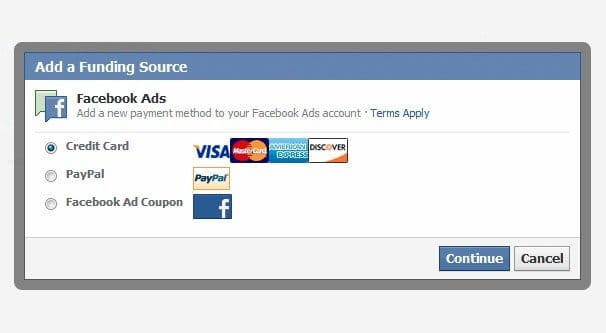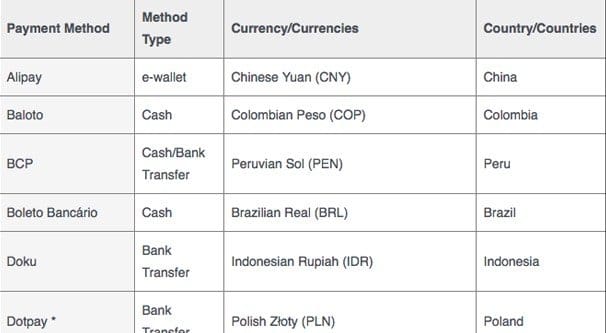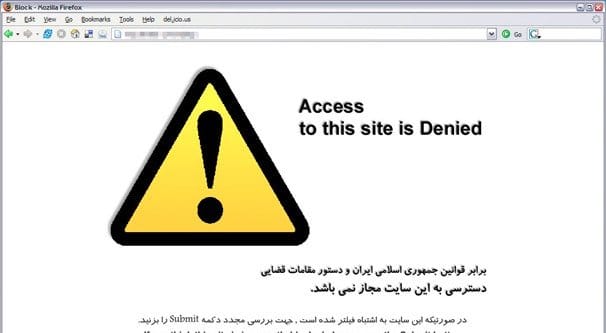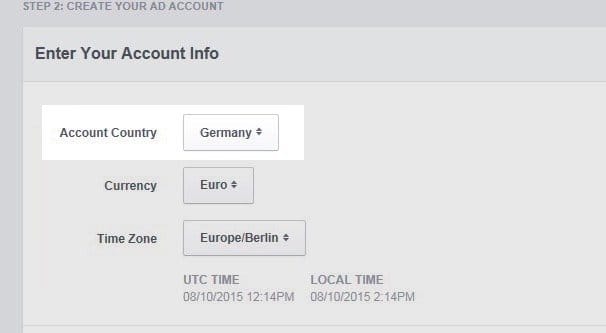 Written by ContentPowered.com
Written by ContentPowered.com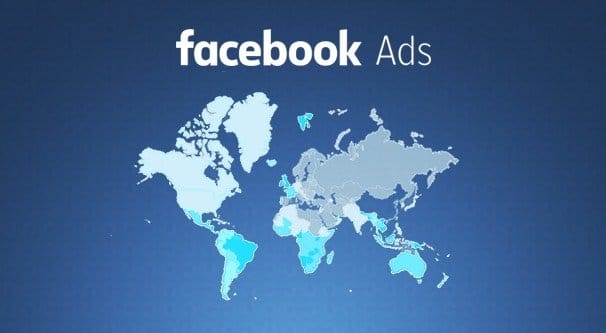
If you’re trying to figure out which countries are eligible to USE Facebook ads, rather than anything about ad targeting, you’re going to encounter the same problem I did: it’s practically impossible. Google interprets your information-seeking query as a plea for any sort of information that relates to countries and Facebook. Facebook’s help center, meanwhile, is a trash fire. Thousands of threads on a highly-ranked domain, all of which are virtually useless, but flood the search results.
At the same time, Facebook’s advertising guidelines are a mess. They have a ton of different rules, some of which almost seem contradictory, and their actual enforcement is spotty at best. Facebook heavily relies on automated systems due to the sheer volume of people using their systems, and automated systems can be flaky if they aren’t flexible or too strict with their overreach. Not to mention that Facebook keeps changing everything.
In fact, as far as I can tell, Facebook does not maintain a list of countries that are banned from using their advertising. It always seems to be outside forces that are the determining factor.
Payment Methods
The first restriction for Facebook ads is the payment method you use. If you can’t pay for your Facebook ads, you can’t run those ads, right?
Facebook has gone out of its way to make as many different payment methods available to as many different people as possible. You can set up automatic payments, which is the default method of paying for ads. You can also set up manual payments, if your area does not support or you cannot use any of the automatic methods.
Automatic payments can be performed through Visa, MasterCard, and Discover Card using any of the accepted currencies. This is the accepted currency list. Additionally, you can set up automatic payments with American Express, which maintains its own list of accepted currencies. You can find that list here. In some countries outside of the USA, there are other automatic payment methods enabled as well. For example, in Japan, you can use JCB. PayPal also works globally, though you have to pay in one of the currencies that PayPal accepts, which can be found here. Additionally, you can set up a direct debit program with your bank and Facebook, if you’re in one of the valid countries. THAT list can be found here.
The system for manual payments is both more complex and easier. Basically, Facebook has a big list of payment methods, which countries offer them, what type of payment they are, and what currency they use. For example, if you’re in Poland and are using the Polish Zloty, you can perform bank transfers using Dotpay. If you’re in Belgium and want to pay using Euros, you can do a bank transfer through Mister Cash. That full-size table can be found here.
Manual payment is like a prepaid phone card: you load money into Facebook and they use it to run ads until the money is gone. If you cancel the ads, cancel the account, or remove the payment method, you do not get any of that money back. It is not refundable and they will not return any of it, pretty much no matter what. I suppose if you were the Koch brothers or something, you might be able to strong-arm them into give you your $5 back, but it’s generally not worth the effort.
On top of all of this, you have to be concerned with regional taxes. The two main taxes Facebook is concerned with are the VAT and the GST. The VAT is the Value Added Tax, which is a tax on goods and services throughout Europe. Whether or not you’re charged VAT depends on where you are, where you’re targeting, and what the purpose of your ads will be.
The GST, meanwhile, is the Goods and Services Tax, issued by the India Central Board of Excise and Customs, which is the Indian tax authority. Businesses registered in India must have a GST number in the Facebook system.
One quirk of the ads system is that your business country and your currency must match. You can’t use a currency that is not accepted in the country you claim to be from. This is a minor element of fraud prevention and it helps keep Facebook’s bookkeeping in order.
Banned Countries
Facebook is not accessible from certain countries around the world. As such, Facebook does not allow you to target those countries specifically for ads, nor do they allow you to claim you are from one of those countries in order to run ads. The one that comes up most often is Iran.
Iran bans Facebook entirely in a smaller variation of the Chinese Great Firewall. Iran cannot be selected as a target for Facebook ads, and it is not valid for global ads. You will not get ad clicks from Iran, if you’re running worldwide ads.
This is interesting because Instagram still works in Iran, and Instagram ads still show to some people, though not all of them. However, Instagram ads are run through the Facebook ads manager and thus carry all of the same restrictions. Instagram ads are really just a separate type of ad objective, is all.
Wikipedia has a full list and history of countries that ban Facebook. I’ll summarize it here.
- Bangladesh temporarily banned Facebook for a few days in 2015. In 2017 it has been proposed to implement a six-hour ban nightly, but there’s no word on whether or not that ban will go through.
- China banned Facebook in 2009 and it is still mostly banned. There are some scattered reports of people being able to access it, but on a national level, the Chinese are not able to access Facebook. Interestingly, you can still claim to be from China, pay in Chinese currency, and target China with Facebook ads.
- Egypt blocked Facebook for a few days in 2011 during some political protests.
- Iran has banned Facebook and Twitter since the election in 2009 as a means of censoring the opposition party. Since then it has only been lifted for one day, which was likely a technical glitch.
- Malaysia banned Facebook for a few days in 2011, the same as Egypt.
- Mauritius banned Facebook for a single day due to a fake profile created to imitate the prime minister.
- North Korea has banned Facebook since 2016 and punishes any citizen that attempts to access it.
- Syria banned Facebook for some time, though the ban has been lifted since 2011.
- Tajikistan blocked Facebook for a month after a campaign of slander against their president.
- Vietnam banned Facebook for two weekends in 2016 due to some protests.
For the most part, these bans are not still in effect. Only China and Iran are really still directly banning Facebook, and even China lets some through.
Lists of Countries
You can extrapolate a little bit more information if you have a decent knowledge of geography, or can find a list of countries that exist. Facebook doesn’t publish a list of countries that are able to use Facebook ads, but when you go into the Ads Manager and set up a new Ads account, you can put in information about your location, including your mailing address. As part of this address, you need to fill out your country of operation. This is a drop-down box, which is a long list of available countries. Comparing this list to countries that exist gives you a list of countries that are not available for selection.
Luckily for you, I went through this process. Here is the list of countries you cannot access, based on these comparative lists.
- Cuba, a country that used to be on the list of state sponsors of terrorism. Though Obama removed them from the list, Facebook never allowed them to access Facebook ads.
- Iran, due to being blocked and being a state sponsor of terrorism.
- Sudan, another state sponsor of terrorism.
- Syria, for the same reasons as Iran and Sudan.
Interestingly, Facebook recognizes some regions that the US State Department does not.
- Aland Islands, an archipelago that is often considered to belong to Finland.
- American Samoa, some islands near Samoa and an unincorporated territory of the USA.
- Anguilla, a British overseas territory in the Caribbean.
- Antarctica, because eventually it will be the most habitable land in the world.
- Bermuda, another British overseas territory.
- Bonaire, part of the ABC islands.
- Bouvet Island, an island north of Norway that is uninhabited. Why you can set your address there, I have no idea.
- British Indian Ocean Territory, a collection of over 1,000 islands, all of which are tiny.
- British Virgin Islands.
- The Cayman Islands.
- Christmas Island.
- Cocos (Keeling) Islands, a territory of Australia.
- The Cook Islands, a self-governing island associated with New Zealand.
- Falkland Islands.
- Faroe Islands.
- French Guiana.
- French Polynesia.
- French Southern Territories.
- Gibraltar, generally lumped in with Spain or with the British Overseas Territories.
- Guadeloupe, an island region of France.
- Guam, another region of the islands throughout the Pacific and an unincorporated US territory.
- Guernsey, a territory in the English Channel and a crown dependency.
- Heard Island and McDonald Islands.
- Isle of Man.
- Jersey, another English Channel island.
- Martinique, another Caribbean island.
- Mayotte, another French island.
- Moldova, a small European country near Romania.
- Montserrat, yet another Caribbean island.
- Netherlands Antilles.
- New Caledonia.
- Niue.
- Norfolk Island.
- Northern Mariana Islands.
- Pitcairn.
- Puerto Rico, oddly enough.
- Reuinion.
- Saint Barthelemy, Saint Helena, Saint Pierre and Miquelon.
- South Georgia and the South Sandwich Islands. Who names these places, anyway?
- Svalbard and Jan Mayen.
- Tokelau.
- Turks and Caicos Islands.
- The US Virgin Islands, and the US Minor Outlying Islands.
- Wallis and Futuna.
- Western Sahara.
Most of these seems to be either small semi-independent regions of countries more broadly identified, or regions that are lumped together under broad names elsewhere. Facebook divides them up into smaller individual locations specifically so that local businesses in those locations can target their own regions rather than larger, broader regions that won’t be as effective.
Summing Up
At the end of the day, there isn’t much in the way of countries Facebook blocks from using Facebook ads. It makes sense, of course; if Facebook is displaying content in a location, they want to be able to monetize that display, which means they’re going to try to enable Facebook ads. The only locations that Facebook won’t do business with are those specifically on the list of countries the United States will not do business with. They don’t want to be found breaking the law in a way that could lead to steep penalties from the government, as much as they might flaunt government authority in other realms.
So, if you’re in one of those few countries that can’t access Facebook ads, you could try to use IP and proxy methods to circumvent Facebook’s block, but you wouldn’t be able to run local ads anyway. You may want to consider third-party tools and services.
